Best Kotlin Programming Books to Buy in February 2026
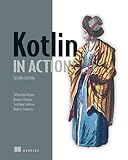
Kotlin in Action, Second Edition


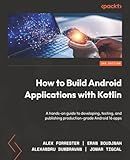
How to Build Android Applications with Kotlin: A hands-on guide to developing, testing, and publishing production-grade Android 16 apps


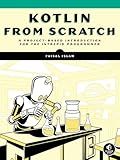
Kotlin from Scratch: A Project-Based Introduction for the Intrepid Programmer


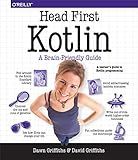
Head First Kotlin: A Brain-Friendly Guide


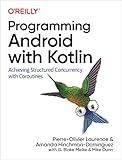
Programming Android with Kotlin: Achieving Structured Concurrency with Coroutines


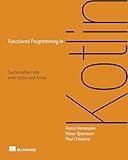
Functional Programming in Kotlin


In Kotlin, you can call a function if a condition is true by using the "if" statement. Here is an example:
fun printMessage(message: String) { println(message) }
fun main() { val condition = true
// Call printMessage function if condition is true
if (condition) {
printMessage("Condition is true!")
}
}
In the above code, we have a function called "printMessage" that takes a parameter called "message" and prints it. Inside the "main" function, we have a boolean variable "condition" set to true. The "if" statement is used to check if the condition is true and if so, it calls the "printMessage" function with the message "Condition is true!".
By using the "if" statement, you can execute a block of code only when a specific condition is met. If the condition evaluates to true, the specified function will be called. Otherwise, it will be skipped over.
How to use the 'when' statement to call a function in Kotlin?
In Kotlin, you can use the when statement to perform pattern matching and execute code blocks based on certain conditions. To call a function using when, you can follow these steps:
- Define the function you want to call with a particular condition. For example:
fun printMessage(message: String) { println("Printing: $message") }
- Use the when statement to match a specific condition and call the function accordingly. For example:
fun main() { val condition = 5
when (condition) {
1 -> printMessage("Condition is 1")
2 -> printMessage("Condition is 2")
3, 4 -> printMessage("Condition is either 3 or 4")
in 5..10 -> printMessage("Condition is between 5 and 10")
else -> printMessage("Condition is not matched")
}
}
In this example, the printMessage function is called based on the value of the condition variable. Depending on the matching condition, the appropriate message will be printed.
What is the syntax to call a function in Kotlin?
To call a function in Kotlin, you need to follow the syntax:
functionName(arguments)
For example, let's say you have a function called printName that takes a String argument:
fun printName(name: String) { println("Hello, $name!") }
To call this function and pass an argument, you would write:
printName("John")
This would output:
Hello, John!
How to pass parameters to a function in Kotlin?
To pass parameters to a function in Kotlin, you need to declare the parameters within the function's parentheses. Here's an example:
fun greet(name: String, age: Int) { println("Hello, $name! You are $age years old.") }
fun main() { val name = "John" val age = 25 greet(name, age) }
In the greet function, we declare two parameters: name of type String and age of type Int. In the main function, we define values for these parameters (name and age) and pass them to the greet function. Within the greet function, we can then access and use the passed values. The output of the above code will be:
Hello, John! You are 25 years old.
How to optimize function calls based on conditions in Kotlin?
To optimize function calls based on conditions in Kotlin, you can follow the following approaches:
- Inline Functions: Use the inline keyword to declare an inline function. Inline functions are expanded by the compiler at the call site, reducing overhead from function calls. This can be useful when you have a condition that determines whether to call a function or not. For example:
inline fun someFunction(condition: Boolean, block: () -> Unit) { if (condition) { block() } }
// Example usage someFunction(condition) { // code to execute if condition is true }
- Function References: Use function references to avoid unnecessary function calls. Instead of calling the function directly, you can pass a reference to the function and conditionally invoke it based on your condition. For example:
fun functionToCall() { // code to be executed }
// Example usage val reference = ::functionToCall if (condition) { reference() }
- Function Overloading: Overload a function to provide different implementations based on conditions. This allows you to avoid unnecessary checks within the function itself. For example:
fun someFunction(parameter: Int) { // implementation A }
fun someFunction(parameter: Int, condition: Boolean) { if (condition) { // implementation B } else { // implementation A } }
// Example usage if (condition) { someFunction(parameter, condition) } else { someFunction(parameter) }
Note: It's important to measure the actual performance impact of these optimizations to ensure they are effective for your specific use case.
How to handle errors or exceptions in a function call in Kotlin?
In Kotlin, you can handle errors or exceptions in a function call using try-catch blocks. Here's how you can do it:
- Identify the function or code block that you think might throw an exception.
- Place the code inside a try block. This block contains the code that you want to execute.
try { // function call or code that might throw an exception } catch (exception: Exception) { // handle the exception here }
- When an exception occurs within the try block, the catch block is executed. The specific exception type can be specified after the "catch" keyword, or you can use the generic type Exception to catch any exception.
- Inside the catch block, you can define the error-handling logic to handle the exception according to your requirements, such as logging an error message, displaying a user-friendly error message, or taking corrective action.
try { // function call or code that might throw an exception } catch (exception: Exception) { // handle the exception here println("An exception occurred: ${exception.message}") }
Note that in Kotlin, not all exceptions are checked exceptions, which means you don't have to specify or handle them explicitly. However, it's still good practice to handle exceptions where appropriate to ensure robust error handling and prevent unexpected crashes.
How to execute a function if a condition is true in Kotlin?
In Kotlin, you can use the if statement to execute a function if a condition is true. Here's an example:
fun main() { val isConditionTrue = true
if (isConditionTrue) {
yourFunction()
}
}
fun yourFunction() { // Function code here }
In the above example, the yourFunction() will be executed only if isConditionTrue is true. You can replace isConditionTrue with any expression that evaluates to a Boolean value.
